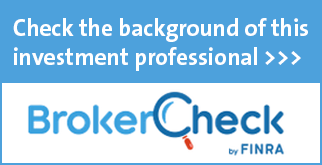
Simple Ways to Plan for Medicare Open Enrollment
Medicare Open Enrollment is happening now!
This year’s Medicare open enrollment period for seniors started on October 15th and ends on December 7th. Now is the time for you to make various changes to your Medicare plan coverage.
Too often, as financial planners, we see clients procrastinate and wait until the final week of enrollment before they even start considering their Medicare Plan options, and oftentimes these clients are forced to make hasty decisions regarding their health care that results in inadequate coverage or higher overall costs.
Pre-retirees and retirees need to be aware of the rising cost of Healthcare during their retirement years, and depending on their health situation, they should expect approximately two-thirds of their total medical expenses to occur in the latter half of their retirement years.
To help seniors act on this very important piece of year-end planning, here are a few things to consider as you narrow down your Medicare plan decisions.
- How much did you pay for out-of-pocket medical expenses last year and this year? Have your cost gone up from year-to-year? Having a good estimate will help you determine what type of plan coverage you need, and how much you should expect to spend on Medicare premiums.
- Are you or your spouse still employed, and covered by an employer’s Health Plan? If you hit age 65, and you and your spouse are still covered by an employer’s health plan, then you don’t have to sign up for Medicare and you won’t be penalized as long as that employer coverage continues. Being covered by an employer plan can be nice in that it gives you more flexibility to change from different health plans once per year without having to go through medical underwriting. Just note that the employer’s plan must be “creditable” with Medicare.
Also, before you skip the Medicare prescription drug coverage option (available through Medicare Part D or a Medicare Advantage Plan) you should re-check to make sure that you have adequate prescription-drug coverage through the employer’s plan, as there is a trend among employers to lower the benefits for prescription coverage. Higher prescription drug costs can lead to unexpected, higher out-of-pocket expenses. We recommend that you talk with your employer’s HR specialist or health insurance agent.
- Are all your preferred physicians in the plan’s network? Paying additional premiums for seeing doctors outside your plan’s network can hurt you financially.
Here are a few resources where you can get help, talk to live representatives, and receive free guidance on Medicare plans:
- Call 800-MEDICARE. Representatives can take the names/dosages of your drugs and help you find the lowest-cost plans for the coming year. The reps can also help you enroll in a different plan. They won’t be able to identify the restrictions in the plans.
- Your nearest Medicare counseling agency. Find at www.shiptacenter.org. This free service allows you to actually sit down and spend more time with counselors who can help you navigate the Medicare program.
- Medicare Rights Center’s national helpline at (800) 333-4114.
- The Medicare.gov website has a helpful information including a list of factors that affect Medicare out-of-pocket costs
Moral of the story: Plan early! Don’t wait until the holidays to make your Medicare plan decisions!
—
Still worried about how ongoing medical expenses and other withdrawals will affect your retirement savings and lifestyle? Our financial strategists can help you create and implement a long-term plan focused on protecting your nest egg so that you can get best out of your retirement. Call and speak to one of our experts at 888-65S-QUAD or (888)657-7823!

